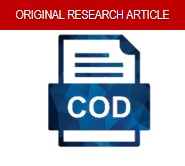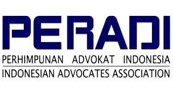Implications of the Transfer of Undertaking Protection of Employment (TUPE) on the Rights of Workers with Certain Time Work Agreements (PKWT)
DOI:
https://doi.org/10.46924/jihk.v1i2.156Keywords:
Tranfer of Undertaking Protection of Employment (TUPE), Specific Time Work Agreement (PKWT), Workers' RightsAbstract
The purpose of this study was to determine the Principle of Transfer of Undertaking Protection of Employment (TUPE) in Indonesia’s outsourcing companies, the concept of a Specific Time Work Agreement (PKWT) in outsourcing companies and to investigate the implementation of TUPE principles on the rights of outsourcing workers with the Agreement status. In order to protect the rights of outsourced workers with the agreement status, the service provider company is obliged to include clauses on guarantees for continuity of work, guarantees for the fulfillment of workers' rights in accordance with applicable laws and regulations and guarantees for calculating the working period in the event of a change in the service provider company to set wages.
Downloads
References
Arliman, Laurensius. “Perkembangan Dan Dinamika Hukum Ketenagakerjaan Di Indonesia.” Jurnal Selat 5, no. 1 (2018): 74–87. https://ojs.umrah.ac.id/index.php/selat/article/view/215.
Budi, Iman Setya, and Arie Syantoso. “Analisis Konsep Hak Dan Kewajiban Outsoursing Dalam Perspektif Ekonomi Syariah.” Al- Iqtishadiyah Jurnal Ekonomi Syariah Dan Hukum Ekonomi Syariah 4, no. 1 (2018): 100–120. http://dx.doi.org/10.31602/iqt.v4i1.1691.
Eccles, Martin, Jeremy Grimshaw, Anne Walker, Marie Johnston, and Nigel Pitts. “Changing the Behavior of Healthcare Professionals: The Use of Theory in Promoting the Uptake of Research Findings.” Journal of Clinical Epidemiology 58, no. 2 (2005): 107–12. http://dx.doi.org/10.1016/j.jclinepi.2004.09.002.
Fathoni, Muhammad Johar. “Transfer of Undertakings Protection of Employment (TUPE) Dalam Perjanjian Outsourcing.” Media Juris 1, no. 2 (2018): 335–49. https://doi.org/10.20473/mi.v1i2.8834.
Fitriyaningrum, Julyatika. “Implementasi Sistem Alih Daya Atau Outsourcing Dalam Mencapai Kesejahteraan Pekerja Indonesia Ditinjau Dari Undang-Undang Nomor 13 Tahun 2003.” Indonesian State Law Review 2, no. 1 (2019): 322–35. https://journal.unnes.ac.id/sju/index.php/islrev/article/view/38448.
Iqbal, Muhammad, and Iqlima Rachmah. “Konsep Perlindungan Tenaga Kerja Kontrak Dalam Undang-Undang Nomor 13 Tahun 2003.” Jurnal Justisia: Jurnal Ilmu Hukum, Perundang-Undangan Dan Pranata Sosial 2, no. 2 (2017): 1–19. http://dx.doi.org/10.22373/justisia.v2i2.2652.
Khairani, Khairani. “Kedudukan Outsourcing Pasca Putusan Mahkamah Konstitusi Nomor 27/PUU-IX/2011.” Jurnal Konstitusi 11, no. 4 (2014): 806–25. http://dx.doi.org/10.31078/jk%25x.
Mebang, Desi Natalia. “Penerapan Perjanjian Kerja Bagi Pekerja Alihdaya (Outsourcing) Pada PT. Pln (Persero) Area Samarinda.” Jurnal Administrasi Publik 3, no. 4 (2015): 1397–1408. https://ejournal.ap.fisip-unmul.ac.id/site/?p=1576.
Munir, Abdul. “Viktimisasi Struktural Terhadap Buruh Melalui Sistem Outsourcing (Studi Kasus Buruh Outsourcing PT (X) Yang Dipekerjakan Pada PT (Y) Di Kabupaten Serang Provinsi Banten.” SOSIOLOGI: Jurnal Ilmiah Kajian Ilmu Sosial Dan Budaya 16, no. 2 (2014): 77–92. https://doi.org/10.23960/sosiologi.v16i2.97.
Nafila, Nafila, Erlin Kristine, and Endra Wijaya. “Perlindungan Hak-Hak Buruh Pada Praktik Sistem Outsourcing: Sebuah Kesenjangan Penerimaan.” Jurnal Hukum Novelty 8, no. 2 (2017): 254–55. http://dx.doi.org/10.26555/novelty.v8i2.a5552.
Nasif, Khifni, and Istianah Ni’mah. “Analisis Kesejahteraan Karyawan Outsourcing Dalam Perspektif Karyawan PT Spirit Krida Indonesia.” EquiLibrum: Jurnal Ekonomi Syariah 4, no. 2 (2016): 300–317. http://dx.doi.org/10.21043/equilibrium.v4i2.1956.
Pakpahan, Muchtar. “Welfare State, The 1945 Constitution, and Industrial Relations.” Journal of Administrative Sciences & Organization 17, no. 3 (2010): 209–17. http://journal.ui.ac.id/index.php/jbb/article/view/784.
Ritonga, Rena Zefania, and Vicariya Retnowati Boong. “Analisis Pemahaman Pekerja Kontrak Outsourcing Terhadap Hak-Hak Pekerja Yang Tercantum Dalam Undang-Undang Nomor 13 Tahun 2003 Tentang Ketenagakerjaan Di Wilayah Kota Surabaya.” Jurnal Panorama Hukum 3, no. 2 (2018): 171–88. https://doi.org/10.21067/jph.v3i2.2749.
Sudiarawan, Kadek Agus. “Pengaturan Prinsip Transfer of Undertaking Protection of Employment (TUPE) Dalam Dunia Ketenagakerjaan Indonesia (Diantara Potensi Dan Hambatan).” Udayana Master Law Journal 4, no. 4 (2015): 796–804. https://doi.org/10.24843/JMHU.2015.v04.i04.p18.
Buku
Khairani Khairani,. Kepastian Hukum Hak Pekerja Outsourching: Ditinjau Dari Konsep Hubungan Kerja Antara Pekerja Dengan Pemberi Kerja. Jakarta: Rajawali Pers, 2016.
Rumainur. Dasar-Dasar Outsourching. Jakarta: Tampuniak Mustika Edukarya, 2016.
Peraturan Perundang-undangan
Indonesia. Undang-Undang No 13 tentang Ketenagakerjaan (2003).
Mahkamah Konstitusi Republik Indonesia. Putusan Mahkamah Konstitusi No. 27/PUU/IX (2011).
Downloads
Published
How to Cite
Issue
Section
License
Authors who publish with this journal agree to the following terms:
- Copyright on any article is retained by the author(s).
- The author grants the journal, the right of first publication with the work simultaneously licensed under a Creative Commons Attribution License that allows others to share the work with an acknowledgment of the work’s authorship and initial publication in this journal.
- Authors are able to enter into separate, additional contractual arrangements for the non-exclusive distribution of the journal’s published version of the work (e.g., post it to an institutional repository or publish it in a book), with an acknowledgment of its initial publication in this journal.
- Authors are permitted and encouraged to post their work online (e.g., in institutional repositories or on their website) prior to and during the submission process, as it can lead to productive exchanges, as well as earlier and greater citation of published work.
- The article and any associated published material is distributed under the Creative Commons Attribution 4.0 International License




 Sinta ID:
Sinta ID: 


















